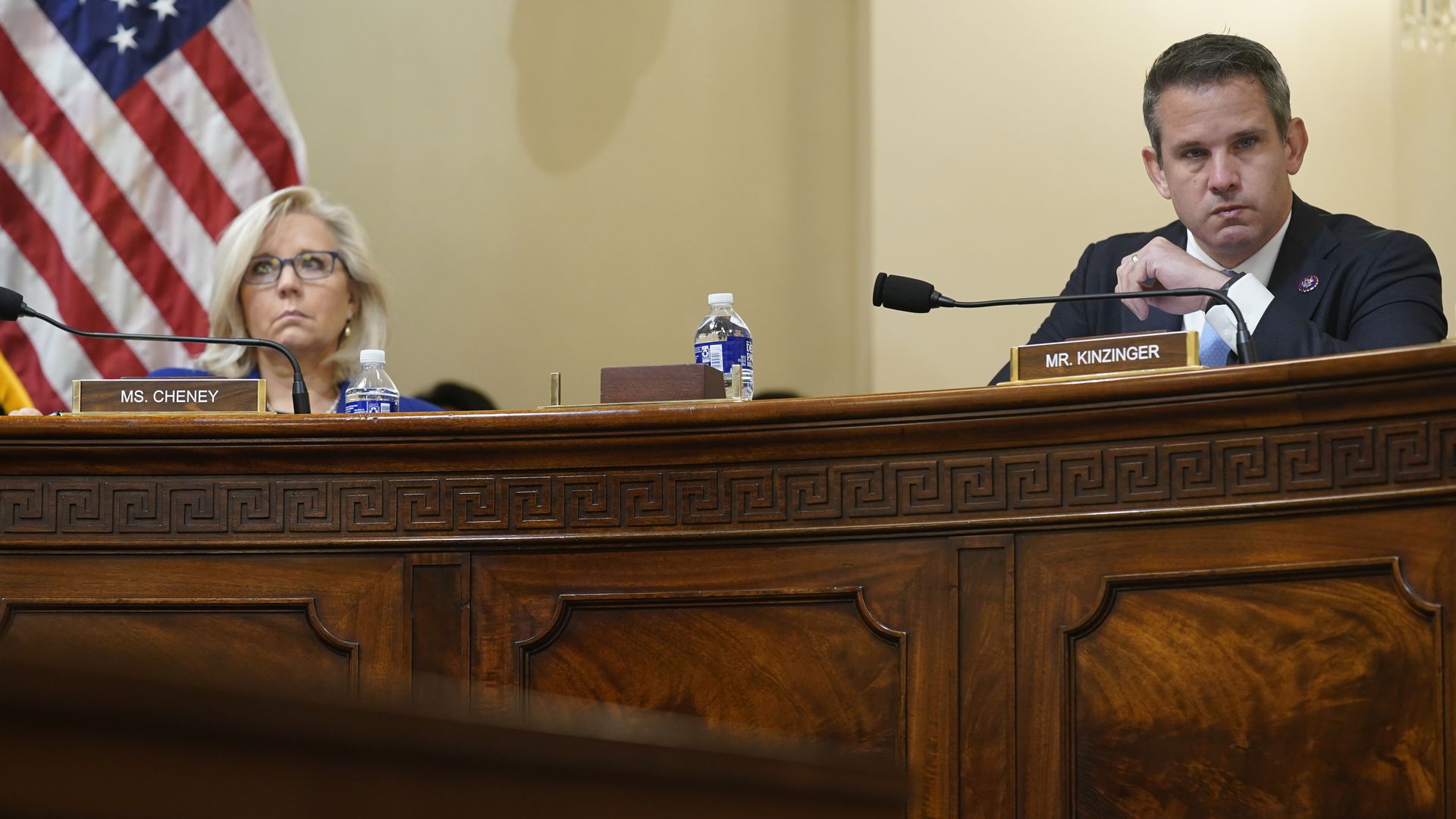| | | | | | | Presented By Facebook | | | | Axios Sneak Peek | | By Alayna Treene and Hans Nichols ·Jul 29, 2021 | | Welcome back to Sneak. A newsy and impactful week draws to a close. Smart Brevity™ count: 1,896 ... 7 minutes. Edited by Glen Johnson. | | | | | | 1 big thing: Infrastructure cap will force fuzzy math |  | | | President Biden answers reporters' questions after a speech today. Photo: Anna Moneymaker/Getty Images | | | | Sen. Kyrsten Sinema's (D-Ariz.) warning that she's opposed to a budget reconciliation bill costing $3.5 trillion will force Senate Democrats and the White House to either trim the proposals in it or tinker with how many years they'll run, Axios' Hans Nichols writes. Why it matters: Such gamesmanship will be necessary if lawmakers and the Biden administration want to keep the support of progressives and centrists. But it will lead to a bill with costs and durations as uneven as the Manhattan skyline. - "The length of programs will be set by the reconciliation bill," one White House official told Axios. "The future of temporary programs will be up to a future Congress."
The big picture: For example, progressives are eager to make the Child Tax Credit — which was expanded in the $1.9 trillion American Recovery Act enacted in March — a permanent tool to reduce childhood poverty. - While the White House shares that long-term goal, President Biden only proposed extending the CTC through 2025 in the American Families Plan, his version of the "soft" infrastructure bill that would be passed through reconciliation.
- That extension of the CTC would cost an estimated $100 billion a year.
Gene Sperling, one of Biden's top economic advisers, is quietly trying to convince progressives the White House is committed to making the CTC permanent, people familiar with the matter tell Axios. - Such assurances are vital to maintaining support during what promises to be brutal negotiations this fall as Democrats debate how broadly to expand the social safety net.
- Sperling is currently working to convince allied groups the administration needs time to show the public how effective the CTC can be in fighting poverty and helping families, but is committed to making it permanent down the line.
- A White House official stressed that Sperling is saying in private what the administration has said in public about making the CTC permanent.
- The recovery act, which passed on a party-line vote, increased the amount families receive from the CTC from $2,000 per year to as much as $3,600 per child, per year.
The intrigue: If Democrats decide to pay for as many progressive priorities as possible via reconciliation, they risk funding them for only short windows, given the spending ceiling set by Sinema and other moderates. - Using shorter funding timeframes to reach a lower price tag would leave such programs vulnerable to cuts by a future Republican-controlled Congress.
- The other way to lower the price tag is to include fewer programs over a longer duration, giving those programs more time to become popular and ingrained with the American public.
- That makes them more difficult for future Congresses — or presidents — to cut or eliminate.
Keep reading. |     | | | | | | 2. Mitch's Sinema secret |  | | | Sen. Kyrsten Sinema. Photo: Stefani Reynolds/Bloomberg via Getty Images | | | | Senate Minority Leader Mitch McConnell (R-Ky.) is quietly urging his fellow Republicans to buck up Sinema — even though she's a Democrat, sources familiar with the conversations tell Axios' Jonathan Swan. Why it matters: Republicans view Sinema and her moderate Democratic colleague Sen. Joe Manchin of West Virginia as their last line of defense against sweeping progressive laws — ranging from that $3.5 trillion social welfare bill to potentially irreversible structural changes like eliminating the filibuster and adding new states to the union. Between the lines: Sen. Thom Tillis (R-N.C.) published an uncommon opinion piece Wednesday on the NBC News website thanking and crediting Sinema. - He praised the bipartisan infrastructure deal and said she'd taken more political risk than anyone, given that many progressives are now campaigning against her because she's working with Republicans.
- "It's rare to have an elected official from one party publicly praising another from the opposite party," Tillis wrote, "but I'm doing just that because it's so essential for the future of our nation that Sinema holds fast in keeping the filibuster intact."
- "The importance of her effort," he added, "has been made clear as the Senate has worked to pass bipartisan infrastructure legislation rather than pushing through every liberal dream item."
Daniel Keylin, a senior adviser to Tillis, told Axios McConnell's private encouragement had no bearing on the senator's decision to write his piece. - "It was Senator Tillis' idea and had been in the works for many weeks," Keylin said. "It was motivated by her good-faith leadership of the infrastructure negotiations and other bipartisan working groups they are in."
The big picture: McConnell is urging support for Sinema in private conversations, telling those with relationships with her that now is the time to speak up on her behalf. - He's also used his own media appearances during the past month to send public signals to his colleagues.
- During a June 23 appearance on Fox News Radio's Guy Benson Show, the minority leader said he admired Sinema and Manchin for their "courage in defending the Senate as an institution."
- And on Wednesday, McConnell told Fox Business host Larry Kudlow that Sinema was "very courageous" for saying she can't support a Democratic reconciliation package costing $3.5 trillion.
What they're saying: A spokesman for McConnell declined comment. |     | | | | | | 3. By the numbers: Clocking the House |  Data: Brookings Institution, U.S. Senate; Chart: Connor Rothschild/Axios Like their Senate colleagues, House members are spending more days in session than past congresses — but far fewer hours per day on average, according to data from the Brookings Institution and the U.S. Senate reviewed by Axios' Stef Kight. Why it matters: The Senate may have come to an agreement on the bipartisan infrastructure package yesterday, but it still faces chaos in the House — and threatens to cut short representatives' August recess late next month. - While House members spent less than 4 hours per day in session during the 116th Congress, from 2019 through 2020, a big part of their jobs includes spending time in their districts.
- There's only data for half a year, but the 117th Congress has spent an average of 4 1/2 hours per day in session, so far.
The big picture: Although the House also had to shorten its August recess in 2010 and 1994, the summer break has generally gotten longer for representatives during election years, according to Pew Research Center. - The House spent an average of 17 days on August recess during election years between 1972 and 1982. That rose to 36 days between 2006 and 2016.
|     | | | | | | A message from Facebook | | The internet has changed a lot since 1996 - internet regulations should too | | |  | | | | It's been 25 years since comprehensive internet regulations passed. See why we support updated regulations on key issues, including: - Protecting people's privacy.
- Enabling safe and easy data portability between platforms.
- Preventing election interference.
- Reforming Section 230.
| | | | | | 4. The Republicans' mixed mandate message |  | | | Illustration: Annelise Capossela/Axios | | | | Republicans have expressed selective rage amid the rise of the Delta variant: They rail against the return of indoor masking but are far less vocal about vaccine requirements, Axios' Caitlin Owens writes. Why it matters: Masking may help reduce the spread of the coronavirus, but the real solution to the pandemic is getting more Americans vaccinated. Increased support for that — including the use of heavier-handed methods like mandates — will only increase its chance of succeeding. Driving the news: The president announced today that federal employees and contractors will be asked to provide their vaccine status. Those who don't attest to being fully vaccinated will have to wear masks, social distance and undergo frequent testing. - The administration has been careful to frame the policy as a choice rather than an actual vaccine mandate, though the net effect is similar.
- The announcement followed a slew of similar policies issued earlier this week by health care organizations, state governments, private businesses and even the VA.
Between the lines: The GOP's response to such vaccine requirements has been much more muted than its reaction to updated CDC masking guidance saying that even fully vaccinated people should resume wearing masks indoors in high-COVID areas. - "Every time the CDC releases new guidance, not only does it contradict information they've already released, but it punishes Americans who've already done everything they were asked to do," House Minority Leader Kevin McCarthy (R-Calif.) said earlier today on the steps of the Capitol.
- His remarks — made at a lectern bearing a sign that said "Country in Crisis" — didn't make mention of the new vaccine requirements.
- While the federal government's policy hadn't yet been announced, it had been leaked to the media, and private employers like Google and Facebook had also announced their own mandates.
Yes, but: The governors in many red states have banned various forms of vaccine mandates, including from private businesses, government agencies and other employers. - And some federal lawmakers aren't happy with Biden's new policy.
- "Vaccines mandates violate our rights to medical privacy and autonomy, and they are the start of a slippery slope toward excessive government control, bringing us closer and closer to mandated vaccine passports, school closures, and more draconian lockdowns," Sen. Ted Cruz (R-Texas) said in a statement today.
Keep reading. |     | | | | | | 5. Trump's Republican critics rake cash |  | | | Reps. Liz Cheney and Adam Kinzinger during the first Jan. 6 hearing. Photo: Andrew Harnik-Pool/Getty Images | | | | Republican critics of Donald Trump have raked in campaign cash this year as their votes to impeach the former president and investigate the Jan. 6 Capitol attack have put them in the crosshairs of Trump and his allies, Axios' Lachlan Markay reports. Why it matters: The 2022 midterms won't just determine which party controls Congress. They're also shaping up to be a test of Trump's continued hold on the GOP. The few remaining Republican dissenters in Washington need to put up big fundraising numbers if they hope to stave off a purge. - Two prime Trump antagonists, Reps. Adam Kinzinger (R-Ill.) and Liz Cheney (R-Wyo.), were front and center this week as the sole Republicans on the House select committee investigating the Capitol attack.
- It earned them the fury of Trump's many Republican allies, but they — and a larger cohort of Trump-skeptical Republicans — are building huge political war chests nonetheless.
What's new: Americans Keeping Country First, a super PAC created in late February to defend Republicans who voted to impeach Trump this year, is set to report $525,000 in income through the end of June, the group tells Axios. - That puts it on or above the fundraising pace of independent political groups going after the few remaining Republican Trump critics in Congress.
- One such pro-Trump group, Drain the DC Swamp PAC, brought in a little over $600,000 during the first half of the year.
- And America Strong PAC, which formed in early May to attack the 10 House Republicans who voted for impeachment, raised $51,000 during its first two months.
What they're saying: "The strong start for Americans Keeping Country First reflects the broad support for the Republicans who voted to put country first," Brendan Buck, a senior adviser to the group, told Axios in an emailed statement. - "These members stood on principle and now we are prepared to stand with them."
Cheney and Kinzinger themselves are also putting up huge fundraising numbers for the first six months of an election off-year. - Cheney raised more than $3 million in the first half of the year. She has $2.8 million cash on hand.
- Kinzinger's campaign raised nearly $2 million, and ended June with more than $3 million in the bank. His leadership PAC raised more than $1.5 million, according to a Federal Election Commission filing on Thursday.
- That leadership PAC has also steered cash to Cheney and seven of the other Republicans who voted to impeach Trump in January.
Keep reading. |     | | | | | | 6. Pic du jour |  | | | Photo: Russell Contreras/Axios | | | | Native Americans sing to welcome a totem pole, created by Lummi Nation carvers, before it was erected on the National Mall. - Red Road to DC tour organizers brought the totem pole honoring sacred Indigenous places as a gift to President Biden — and seeking his immediate protection of sacred sites.
|     | | | | | | A message from Facebook | | Why Facebook supports updated internet regulations | | |  | | | | 2021 is the 25th anniversary of the Telecommunications Act of 1996, the last major update to internet regulation. It's time for an update to set clear rules for addressing today's toughest challenges. See how we're taking action on key issues and why we support updated internet regulations. | | | | 📬 Thanks for reading. We'll be back Sunday evening. A reminder that your family, friends and colleagues can subscribe to this or any of Axios' other free newsletters by clicking here. |  | | It'll help you deliver employee communications more effectively. | | | | | | Axios thanks our partners for supporting our newsletters. If you're interested in advertising, learn more here.
Sponsorship has no influence on editorial content. Axios, 3100 Clarendon Blvd, Suite 1300, Arlington VA 22201 | | | You received this email because you signed up for newsletters from Axios.
Change your preferences or unsubscribe here. | | | Was this email forwarded to you?
Sign up now to get Axios in your inbox. | | | | Follow Axios on social media:    | | | | | |











No comments:
Post a Comment